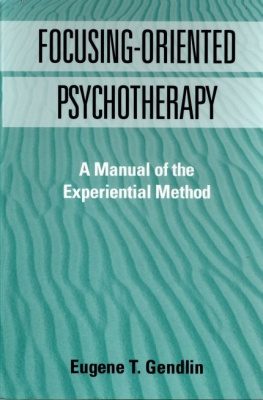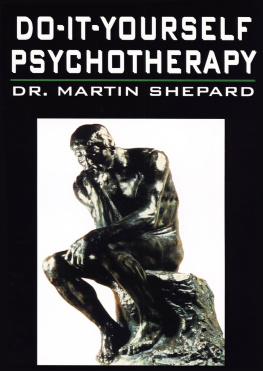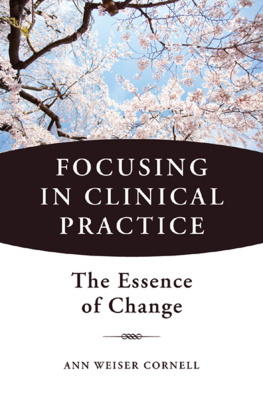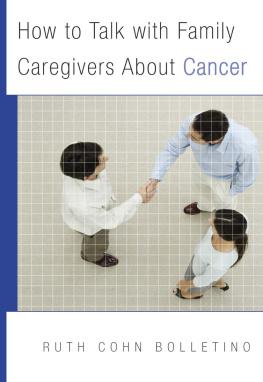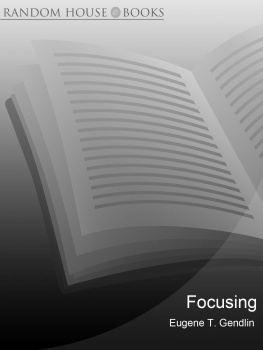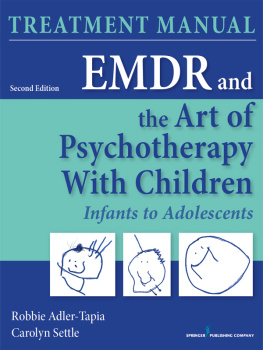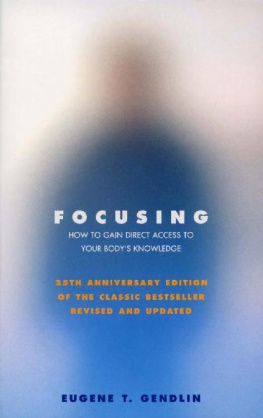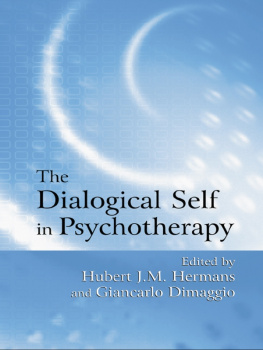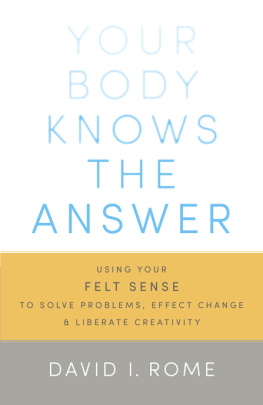T. Gendlin - Focusing-Oriented Psychotherapy: A Manual of the Experiential Method
Here you can read online T. Gendlin - Focusing-Oriented Psychotherapy: A Manual of the Experiential Method full text of the book (entire story) in english for free. Download pdf and epub, get meaning, cover and reviews about this ebook. publisher: The Guilford Press, genre: Religion. Description of the work, (preface) as well as reviews are available. Best literature library LitArk.com created for fans of good reading and offers a wide selection of genres:
Romance novel
Science fiction
Adventure
Detective
Science
History
Home and family
Prose
Art
Politics
Computer
Non-fiction
Religion
Business
Children
Humor
Choose a favorite category and find really read worthwhile books. Enjoy immersion in the world of imagination, feel the emotions of the characters or learn something new for yourself, make an fascinating discovery.
Focusing-Oriented Psychotherapy: A Manual of the Experiential Method: summary, description and annotation
We offer to read an annotation, description, summary or preface (depends on what the author of the book "Focusing-Oriented Psychotherapy: A Manual of the Experiential Method" wrote himself). If you haven't found the necessary information about the book — write in the comments, we will try to find it.
T. Gendlin: author's other books
Who wrote Focusing-Oriented Psychotherapy: A Manual of the Experiential Method? Find out the surname, the name of the author of the book and a list of all author's works by series.
Focusing-Oriented Psychotherapy: A Manual of the Experiential Method — read online for free the complete book (whole text) full work
Below is the text of the book, divided by pages. System saving the place of the last page read, allows you to conveniently read the book "Focusing-Oriented Psychotherapy: A Manual of the Experiential Method" online for free, without having to search again every time where you left off. Put a bookmark, and you can go to the page where you finished reading at any time.
Font size:
Interval:
Bookmark:
Epub Edition ISBN: 9781462505623; Kindle Edition ISBN: 9781462505630
1996 The Guilford Press
A Division of Guilford Publications, Inc.
72 Spring Street, New York, NY 10012
www.guilford.com
All rights reserved
No part of this book may be reproduced, stored in a retrieval system, or transmitted, in any form or by any means, electronic, mechanical, photocopying, microfilming, recording, or otherwise, without written permission from the Publisher.
Last digit is print number: 9
Library of Congress Cataloging-in-Publication Data
Gendlin, Eugene T., 1926
Focusing-oriented psychotherapy : a manual of the experiential
method / Eugene T. Gendlin.
p. cm.(The practicing professional)
Includes bibliographical references and index.
ISBN 0-89862-479-7 (hard)ISBN 1-57230-376-X (pbk.)
1. Focused expressive psychotherapy. 2. Experiential
psychotherapy. 3. Mind and body therapies. I. Title. II. Series.
[DNLM: 1. Cognitive Therapy methods. 2. Psychotherapy
methods. 3. Professional-Patient Relations. WM 425.5.C6 G325f 1996]
RC489.F62G46 1996
616.89'14dc20
DNLM/DLC
for Library of Congress
96-4755
CIP
FOCUSING-ORIENTED
PSYCHOTHERAPY
A MANUAL
OF THE EXPERIENTIAL METHOD
Eugene T. Gendlin

THE GUILFORD PRESS
New York London
A Guilford Series
Edited by
MICHAEL MAHONEY
University of North Texas
and the Saybrook Institute
SELF-NARRATIVES: THE CONSTRUCTION
OF MEANING IN PSYCHOTHERAPY
Hubert J. M. Hermans and Els Hermans-Jansen
FOCUSING-ORIENTED PYCHOTHERAPY:
A MANUAL OF THE EXPERIENTIAL METHOD
Eugene T. Gendlin
WORKING WITH DREAMS IN PSYCHOTHERAPY
Clara E. Hill
I wish to thank Patricia Sella for many helpful discussions during the writing of this book, and Drs. Marion Hendricks, Kathleen McGuire, Mary McGuire, and Judith Malamud for their very helpful readings and comments on every part of the book.
|
MANY METHODS AND STRANDS of psychotherapy are integrated in this book. Each is uniquely valuable in certain respects, provided the clienttherapist relationship is given priority over anything else.
Focusing is a mode of inward bodily attention that is not yet known to most people. To learn it may require a few days of instruction, perhaps eight 3-hour sessions. Some people are able to do it immediately once they attend to their bodies in relation to a problem. During therapy a client can learn it over a period of months from occasional bits of instruction as shown in this book. What focusing is will gradually become clear in the first part of this book. General descriptions do not convey focusing. It differs from the usual attention we pay to feelings because it begins with the body and occurs in the zone between the conscious and the unconscious. Most people dont know that a bodily sense of any topic can be invited to come in that zone, and that one can enter into such a sense. At first it is only a vague discomfort, but soon it becomes a distinct sense with which one can work, and in which one can sort out many strands.
How long it takes to learn focusing seems to be unrelated to other variables. Some clients deepen their therapy immediately when they are invited to attend physically. Even therapists who do not know focusing can markedly improve therapy with some proportion of their clients, simply by asking how what is being discussed makes them feel in the middle of the body and then waiting quietly for the client to sense there. Therefore this is worth trying briefly with every client. But most people can discover focusing only with far subtler instructions over a period of time.
Focusing is a way to enter regularly and deliberately there, where therapeutic movement arises. In early research (Gendlin, 1968c, 1986) it was found that some clients begin therapy already knowing this way of bodily sensing, and they were predictably more successful on the outcome measures. On the tape recordings their language often refers inwardly. For example, the client may say something like, I sense it distinctly but I dont know what it is ... yet. But most clients happen into this kind of sensing only very occasionally. So it is a great advantage if we know how to enable them to discover and employ it when they wish. It saves so much hapless work on the surface, or with emotions that may be very deep, but remain always the same.
Compared to what we can usually think and feel, what comes from the bodily sensed edge of awareness is characteristically more intricate and multifaceted, and yet also more open to new possibilities. We are not bound by the forms of the past, but contrary to what is often said today, we cannot construct just any narrative we like, either. Only certain further steps bring our concrete bodily life along with them. But all this cannot be said properly in an introduction. The words cannot yet mean what they need to mean, to say it. For example, the body referred to here is not the physiological machine of the usual reductive thinking. Here it is the body as sensed frominside, but the words body and inside will acquire a changed and more specific meaning as we proceed. Words alter their meanings in the context of situations, stories, and transcripts.
According to the experiential method, theories are neither true nor false (Gendlin, 1962). They are not true because the kind of entities they assert do not actually exist in concrete human experiencing. But they are not simply false, because they sometimes enable people to locate experiences they would otherwise have missed. The reality of what it brings out would remain even if we were to dismiss the theory.
In the experiential method theories, concepts, and words mean the actual experiences they have brought up, first in ourselves and then also in each next person. Of course everyone is different and can always be surprising, but we soon come to know and feel a range of experiences that each theory sometimes brings out. When we think of the theory, we think not just of concepts; we think of and feel the experiences. They are never simply what a theory asserts. Experiencing is always more intricate. And, it can lead to changes that seem impossible according to the concept.
One great advantage of using theories experientially is that we can think much further, and do much more by going on from experiences, than we could from the concept. For example, Freuds invaluable concepts seem to be about pathological entities from which no change seems to follow. But from the experiences they help us find, we can generate steps of change.
Another advantage is that we can employ all theories. They may contradict each other, but the concrete experiences they help us find do not. Experiences do not contradict each other. If we let theories, concepts, and words refer to concrete experiences, each can help at times. And when a theory leads to nothing that is experienced, we put it aside for the moment.
Experiencing is much more intricate and multifaceted than concepts and theories. Rather than remaining within the paucity and unreliability of a theory, we employ all of them to open whole reaches of human experience. One can then formulate more specific concepts that are also different in kind because they retain their link to an experiencing process that always exceeds them. But this will become clear only from the many examples I present in this book.
Font size:
Interval:
Bookmark:
Similar books «Focusing-Oriented Psychotherapy: A Manual of the Experiential Method»
Look at similar books to Focusing-Oriented Psychotherapy: A Manual of the Experiential Method. We have selected literature similar in name and meaning in the hope of providing readers with more options to find new, interesting, not yet read works.
Discussion, reviews of the book Focusing-Oriented Psychotherapy: A Manual of the Experiential Method and just readers' own opinions. Leave your comments, write what you think about the work, its meaning or the main characters. Specify what exactly you liked and what you didn't like, and why you think so.

